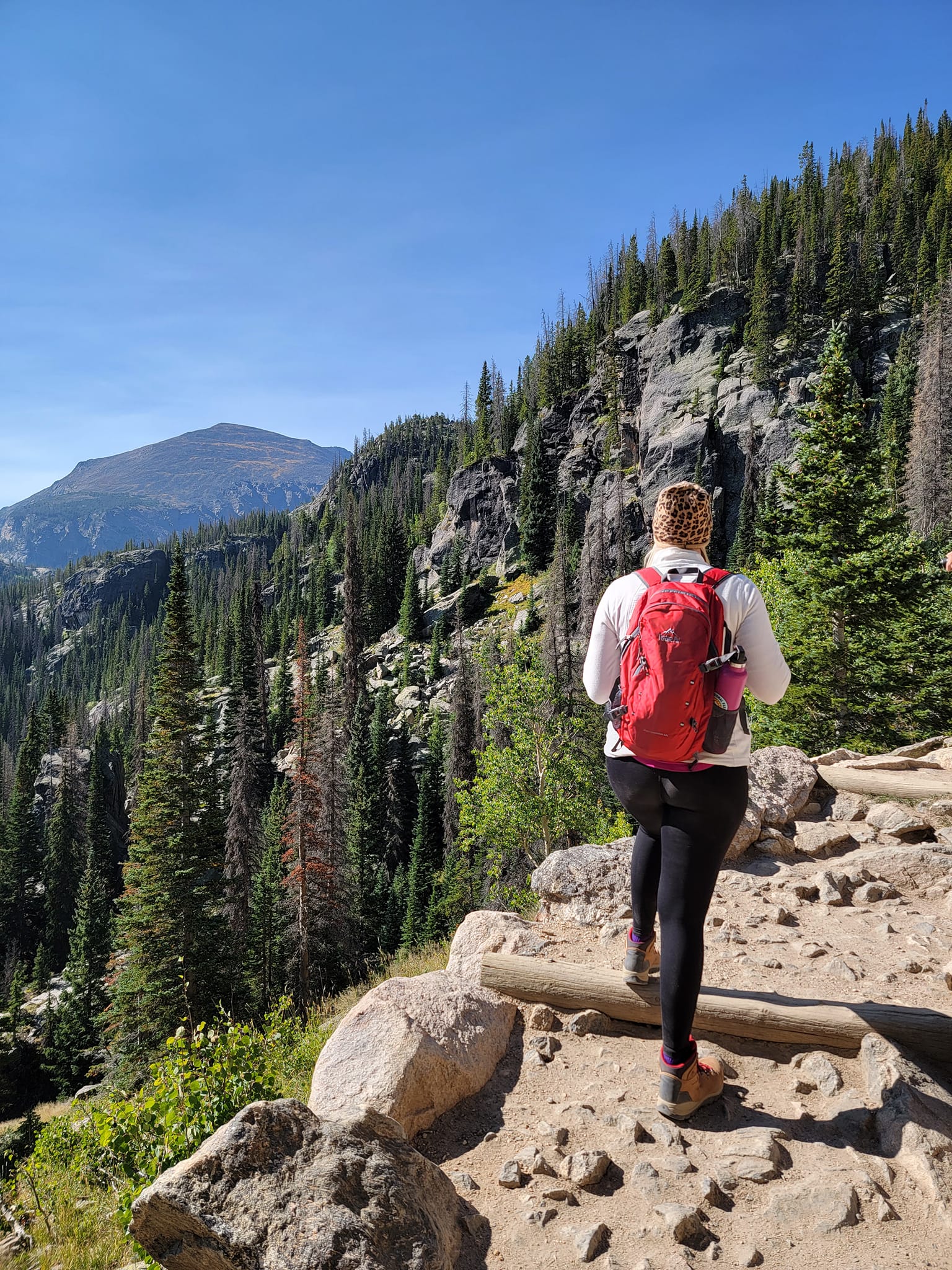3 tips for hiking with diabetes
How to stay safe while being adventure-ready
Jaime Cline, a Senior Product Support Supervisor at Medtronic, recently went hiking in the Rocky Mountains. Having lived with type 1 diabetes since she was 3 years old, Cline knew she would need to take a few extra precautions to keep herself safe on the trails.
“I won’t lie—when I first thought about hiking with diabetes, I was a bit worried,” she said.
Questions ran through her mind as she prepared for the hike.
Would she be able to sustain that amount of physical activity for a long period of time? What would happen if she had a low blood sugar out on the trail or if something happened to her insulin pump?
Cline said she has never let diabetes stop her from living a life full of adventure. She shared some tips from her recent hiking adventure on the Medtronic Diabetes blog, The LOOP.

Be prepared
Pack plenty of snacks in case your blood sugar starts to dip, and make sure to put them in a couple easy-to-access locations in your backpack and in your pockets. Share where your snacks are with your hiking partners in case you need their help grabbing them.
In addition to snacks, make sure to include extra diabetes supplies:
- infusion sets
- reservoirs
- sensors
- needles
- extra insulin
- a cold pack for insulin storage
“Exercising in general with diabetes can be challenging—without the added layer of being in the wilderness,” Cline said. “I had to be prepared for the worst-case scenario even if that meant I felt like I overpacked at the end of the day.”
Have a support system
Go with people who are familiar with type 1 diabetes, what a low blood sugar looks like, and how to help if you experience low blood sugar on the trail.
Do your hiking companions know to get you sugar quickly and to get your glucose levels back in range?
“Luckily, my family knows the specific signs of my low blood sugars. That was a pretty reassuring for me and made me feel a lot more comfortable lacing up my hiking boots,” Cline said.
Know your strength
For Cline, the hike was a reminder of carrying the weight of managing a chronic disease every day. Having to plan, schedule, anticipate, and strategize every single day to keep herself healthy is a weight that never lifts, she said.
“Luckily, the weight of my backpack and the weight of my diabetes didn’t overwhelm me on this trip,” Cline said. “Instead, it reinforced the idea that I’ve always held—that weight makes me stronger.”
This is written from personal experience and is not healthcare advice. Everyone’s diabetes journey is unique. If you have questions or concerns about physical activity, please discuss them with your doctor. Read Cline’s full blog here.
L001-10272022
